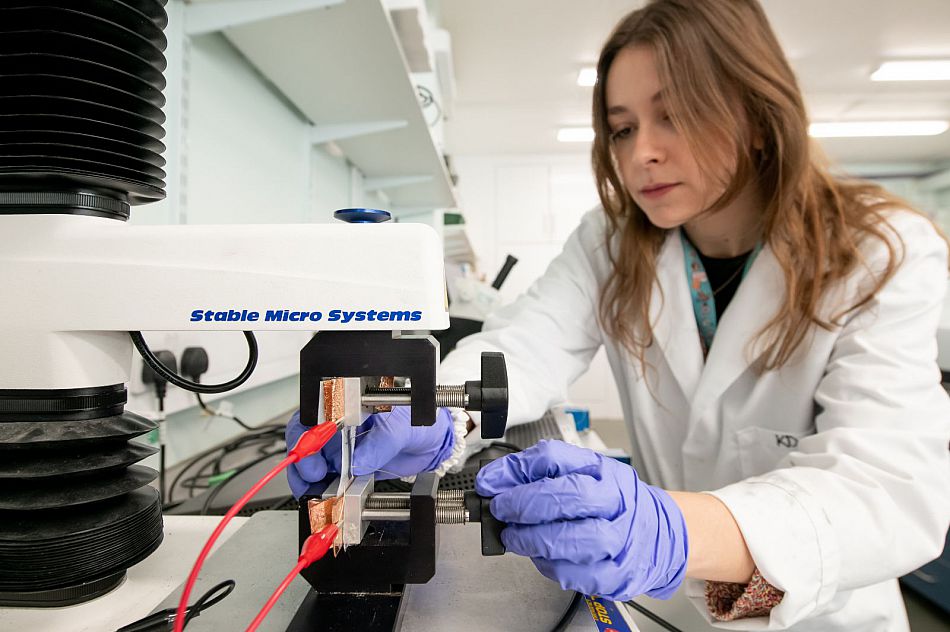Research placement in Physics
Find out more about research placements and explore our projects.
Benefits of a research placement in physics
If you're a high-performing Physics student with top grades, you could be eligible for our Physics (with a research placement) MPhys degree. You'll learn about real research methods and practices.
You’ll:
- go on research placements over the summer with one of our academics, where you wil work on a research problem
- develop your knowledge and skills to enhance your studies
- prepare for your future career or further study
- get paid during your summer placement to cover your living expenses.
Find out more about the degree in our undergraduate prospectus.
Eligibility
To find out if you're eligible and how the research placement works, see our undergraduate prospectus.
Our projects
Because we're a forward-thinking department, we only offer the most up-to-date projects to our students. Projects are subject to change.
If you’re already studying with us, you can find out more about each project.
- Astronomy
Projects have included:
- High energy astrophysics
- Surveying the universe
- Star formation in the distant universe using the Hershcel Multi-Tiered Extragalactic Survey (HerMES)
- Making galaxies: theoretical modelling of galaxy formation
- Making a splash: Modelling water with smoothed-particle hydrodynamics
- Cosmology from the microwave background
- The inflationary model
- Signatures of cosmic reionisation
- Calibrating a small radio telescope
- Fisihing for EELS (Extreme Emission Line Sources).
- Atomic, Molecular and Optical Physics
Projects have included:
- Circuit Quantum Electrodynamics with a single trapped electron
- Ion Quantum Technology
- Quantum systems from confined cold atoms
- Single-ion cavity QED
- Single Molecules Under Control: Laser stabilisation for the manipulation of single molecular ions
- Computational quantum mechanics
- Set up of a photonic characterisation bench using ultrafast optical sources
- Terahertz photonics
- Using quantum physics to improve measurement technology.
- Quantum Technologies
Projects have included:
- Developing and operating ion trap quantum computers
- Quantum microchips
- New concepts in quantum computing
- Quantum simulation with trapped ions
- Quantum simulation with neutral atoms
- Quantum programming languages
- Quantum Radar
- Coupling photons and ions towards realizing a quantum internet
- Developing quantum enhanced clocks
- Quantum sensors to measure brain activity
- Quantum devices for inertial sensing
- Networked quantum sensors
- Quantum foundations and entanglement
- Quantum imaging.
- Theoretical Physics
Projects have included:
- Exploring the Quantum Vacuum: Understanding the Lamb shift caused by vacuum fluctuations in various systems
- Higgs coupling fits
- Warped extra-dimensional models
- Jet physics at the LHC
- Newton's potential in gravitational theories beyond General Relativity.
- Phase transitions in statistical and particle physics
- Phase transitions in the early universe
- Quantum systems from confined cold atoms
- Solitons and oscillons
- Symmetry breaking in particle physics
- Lorentz, canonical and gauge transformations in moving medi
